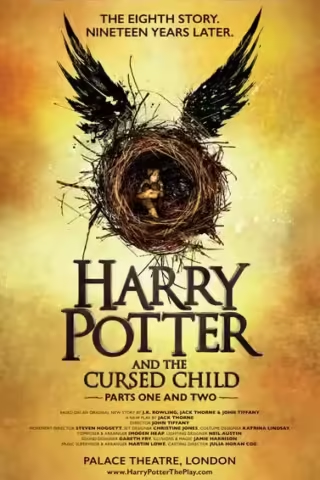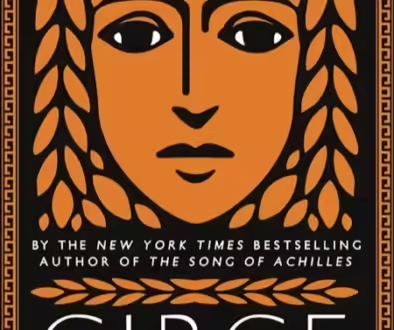
Harry Potter and the Cursed Child J. K. Rowling
“Harry Potter and the Cursed Child” is a play script that extends the beloved Harry Potter series into the realm of theater. Co-written by J.K. Rowling, John Tiffany, and Jack Thorne, it follows the next generation of wizards, focusing on Harry Potter’s son, Albus Severus Potter, as he struggles with the weight of his family’s legacy and his place in the wizarding world.
Set nineteen years after the events of “Harry Potter and the Deathly Hallows,” the story begins with Albus heading off to Hogwarts and quickly diverges into a time-travel adventure. The play explores themes of legacy, friendship, and the complexities of parent-child relationships.
Narrative and Character Development:
One of the strengths of “The Cursed Child” is its exploration of the relationship between Harry and Albus. Harry, now a middle-aged Ministry of Magic employee, struggles to connect with his son, who feels burdened by his father’s fame. The tension between them adds a new layer of depth to Harry’s character, showing him as a flawed and relatable parent.
The play also brings back familiar characters in surprising ways. Scorpius Malfoy, Draco’s son, emerges as a standout character, providing a charming and endearing presence that contrasts with his father’s darker past. The unlikely friendship between Scorpius and Albus forms the emotional core of the story.
Pros:
1. Nostalgic Value: For fans of the original series, the play offers a nostalgic return to the wizarding world, filled with familiar characters and settings.
2. Character Exploration: The play provides a deeper look into the lives of the original characters as adults, particularly Harry’s struggles with fatherhood.
3. Innovative Format: As a script, it introduces readers to a different storytelling medium, complete with stage directions and theatrical elements.
Cons:
1. Plot and Pacing: The time-travel plot can feel convoluted and sometimes undermines the established lore of the original series. Some fans feel it relies too heavily on nostalgic callbacks.
2. Character Consistency: Some characters’ actions and motivations seem inconsistent with their established personalities, which can be jarring for longtime fans.
3. Script Format: Readers who prefer traditional novels may find the script format less immersive and more challenging to engage with.
Quotations:
“The truth is a beautiful and terrible thing, and should therefore be treated with great caution.”
“Those we love never truly leave us, Harry. There are things that death cannot touch.”
